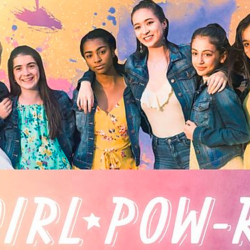The Challenge of Transitioning to Remote Music Production Education
The transition from face-to-face teaching to remote music production education was imposed on many instructors by the COVID-19 pandemic, and significant challenges have been identified throughout this shift. Numerous obstacles have been encountered within the discipline of music production education, causing overall progress to be slowed. One of the most critical concerns has been related to maintaining effective student interaction. This issue has been compounded by the need for professional microphones and high-quality speakers to ensure clear and consistent communication. Furthermore, the transmission of instrumental tone has been found to deteriorate, as sound quality is altered when delivered through computer or smartphone speakers.
Technology Barriers and Student Engagement
Remote music production instruction has been dependent on the accessibility of adequate technology by both teachers and students. It has been limited in many households where multiple computers or stable internet connections cannot be guaranteed. As a result, time lags have been reported, making it difficult for student performances and projects to be accurately evaluated. The experience of spending extended periods staring at a screen has been described as mentally exhausting for both teachers and students. This may result in diminished focus and participation — especially among younger learners who are being introduced to music production tools and creative techniques for the first time.
Collaborative Music Production in a Remote Setting
Additional challenges have been observed in group-based production classes, where collaboration and the blending of musical elements are considered essential. Remote instruction has removed opportunities for students to interact and experiment collectively in real time, which is vital for the collaborative and creative aspects of music production. Within an art form so deeply rooted in active listening and immediate feedback, such limitations have been recognized as significant.
Finding Adaptation Strategies in Uncertain Times

Flexible instructional strategies are being explored, including a combination of online one-on-one production tutorials, in-person lessons, and smaller group workshops. Depending on class size, hybrid models may be implemented, allowing some students to attend on-site while others participate remotely. Through these blended solutions, music production education is being positioned to continue despite the challenges.
Further details on adapting remote music production lessons may be accessed through the Irish Times website.
Supporting Music Production Educators at Canyon Entertainment Group
At Canyon Entertainment Group, support is being provided to those in the music industry who are dedicating their lives to educating the next generation of artists and producers. It is being recognized that teaching is among the most demanding professions, made even more challenging during a global pandemic. Resources and partnerships are being offered by Canyon Entertainment to help teachers and production mentors remain connected with their students and continue nurturing musical talent.
📲 Follow us on social media:
| Instagram | Facebook
If you have specific questions or need assistance with any of our services, feel free to ask!
Read more- Define Your Musical Style



